Women’s history is so hot right now.
Review | 'Poet, Mystic, Widow, Wife' by Hetta Howes (2024)
‘During the Middle Ages, few women had the luxury of writing down their thoughts and feelings. This is the story of four extraordinary women who did. Marie de France, a poet; Julian of Norwich, a mystic; Christine de Pizan, a widow and court-writer; and Margery Kempe, a no-good wife.’
Hetta Howes (2024)
Women’s history is so hot right now.
With International Women’s Day 2025 just behind us and being right in the thick of Women’s History Month, it seems like everyone is writing about women.
And with good cause.
Women’s history is important because women of the past weren’t silent, whatever the sources might suggest. They were vitally-important agents of action and change at all levels of society. We might not be able to name them all, but we have a duty to tell their stories alongside those of their men.
And we need to make an extra effort to highlight women’s stories in history, because for so long they’ve been excluded. It’s not enough simply to put them into the existing narratives. We need to prioritise women’s history and allow it to radically challenge what we think we know about the past. It’s part of the process of thinking critically about the narratives we’ve received and the sources that survive.
This book is a significant contribution to the field of women’s history.
This post is a review of Hetta Howes’ powerful book, Poet, Mystic, Widow, Wife: The Extraordinary Lives of Medieval Women (2024), a history of medieval womanhood through the writings of four medieval female writers:
Marie de France
Julian of Norwich
Christine de Pizan
Margery Kempe
‘These four women, writing hundreds of years before the birth of feminism, all found their own way to push back against misogyny. Each broke new ground in writing, leaving us incredible insights into medieval life and politics as well as the private spaces in which they lived and dreamed.’1
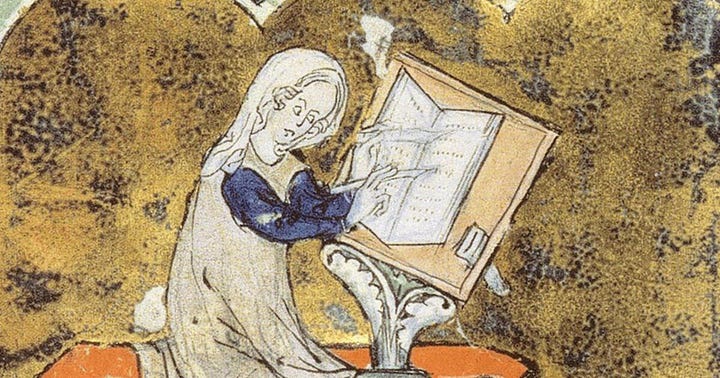

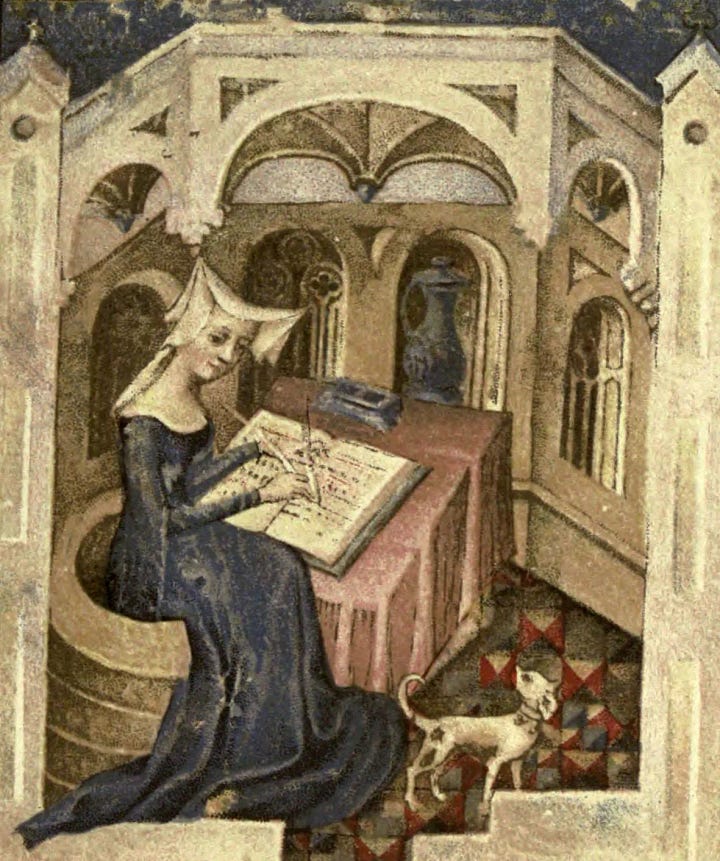
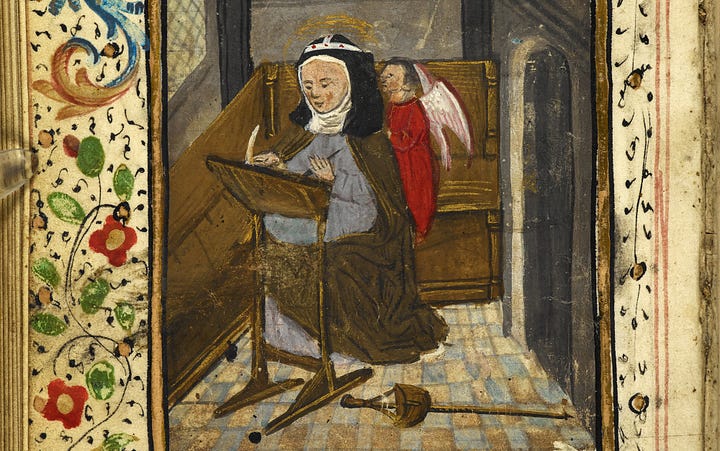
Its foundations are built of women’s words.
It would be wrong to say that women are absent from history.
Women were everywhere in history.
One of the problems, though, is that so much of women’s history derives from men’s words, as the vast majority of written evidence (until the early modern period at least) was produced by men.
There is more wrong with this than I could possibly cover in a 900-word piece for Substack. Yet one of its enduring legacies is that it has left our picture of medieval womanhood mediated by men: what they thought about women; how they thought women thought; and what they thought important to write down about women.
We’re left with a history populated by women, but described by men.
Hetta Howes sets out to shine a different light on this period by putting the spotlight on four of the female voices we can hear. They were, by nature of being those who bucked the trend, exceptional women, but they are female voices, at least.
‘All four of them were writers, a rare profession for women at the time, and this presents us with a unique opportunity. By reading their words and listening to their voices, we can start to piece together a picture of what life was like for medieval women - especially the challenges they faced, as well as how they managed to overcome them. Crucially, however, we can also learn from them. Over the years these women may have been overlooked or even forgotten, but they still have an astonishing amount to teach us - in their own words - about love, marriage, motherhood, friendship, earning a living and even death.’2
It goes beyond the famous voices to tell the stories of relatable women.
Please don’t be mistaken about what this book is not, as I was: it is not a biography of Marie de France, Julian of Norwich, Christine de Pizan, and Margery Kempe.
If anything, Hetta Howes moves on quite quickly from these four women to build a picture of the medieval milieux in which they lived and wrote, using their writing as a window into their wider world, the wider world in which more ordinary women existed.
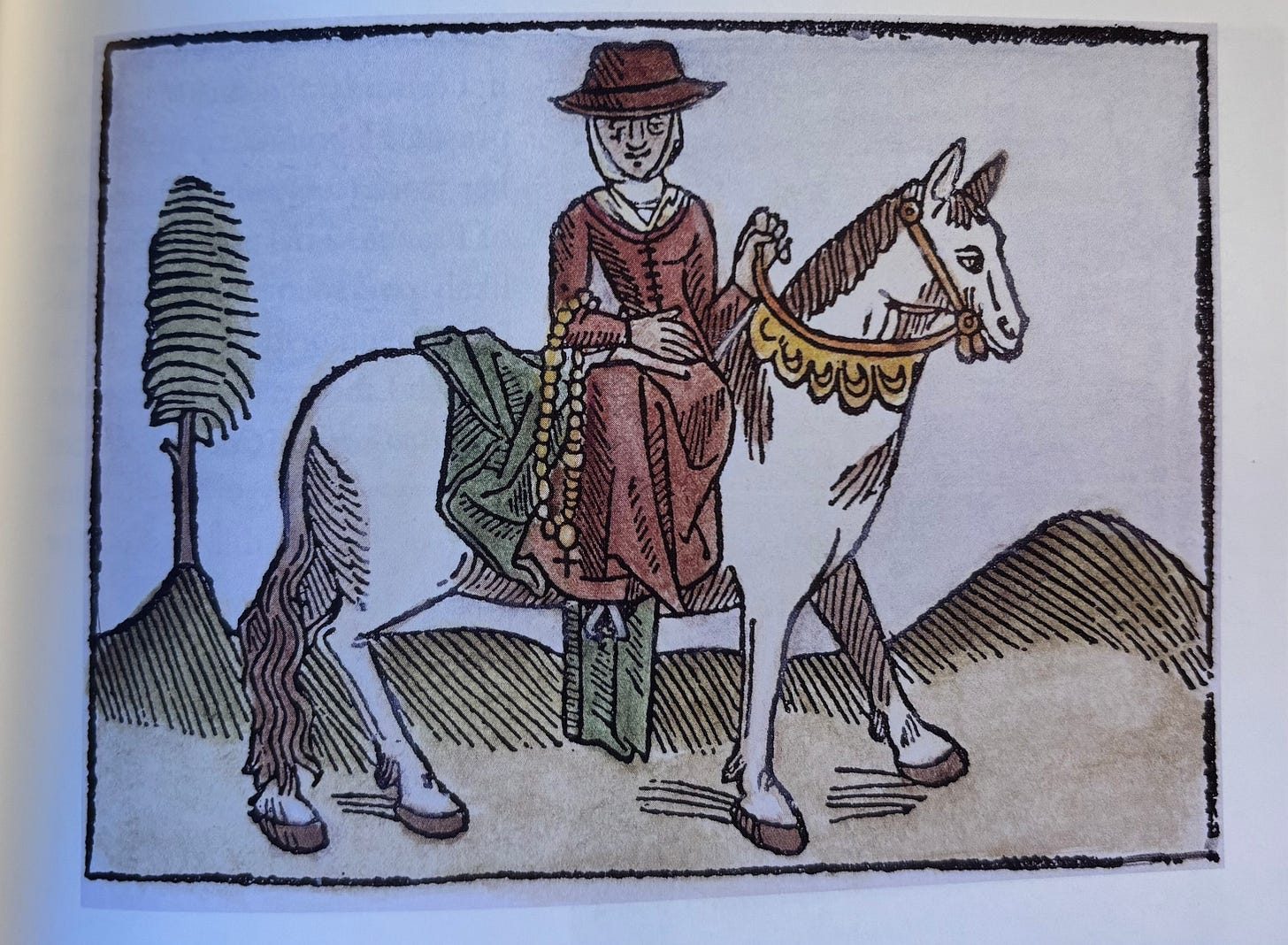
So often our histories focus on the big names because those are the stories that the written evidence preserves. We end up with countless books about medieval kings and queens promising new and interesting angles - but ultimately focusing on the same few people we’ve been writing about for centuries.
As I said above, the four women in this book are, by their nature as innovators and entrepreneurs, exceptional: that’s why there are just a handful of works known to have been written by women in England during this period. It was an exceptional task.
And this means that though we can know about their personal experiences in quite some detail, we can’t tell the individual stories of more ‘ordinary women’3; those details simply don’t exist because they weren’t written down.
But modern writers like Hetta Howes, working with less than ideal primary source material, can - and do - illuminate the worlds these ‘ordinary women’ lived and worked in, including the intellectual/thought worlds that governed what it meant to be a woman during this period.
Rather than read another history of some medieval king4, I’d rather read this kind of history: one that uses women’s words to tell women’s stories.

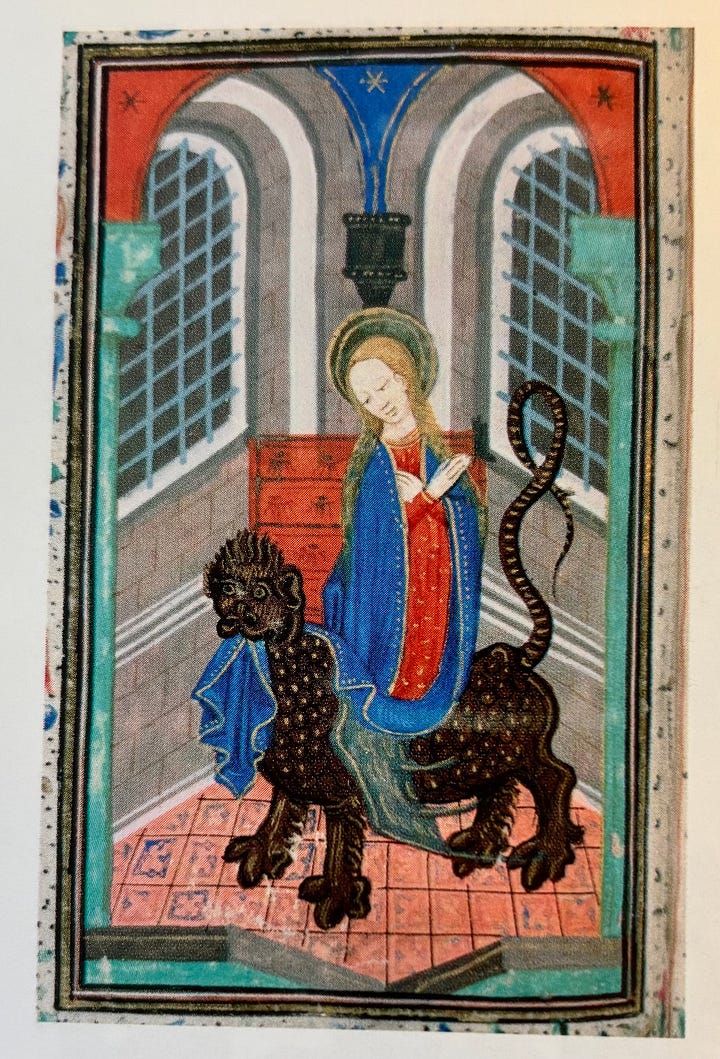
Have you read Poet, Mystic, Widow, Wife? What did you think?
Or are there other books that you have read (recently or long-ago) that are doing the same work of prioritising and spotlighting women’s voices from history? Do let us know in the comments as we continue to open up the conversation around women’s history.
If you enjoyed this post, you might also enjoy…
Images Credit
Marie de France: https://www.readingmuseum.org.uk/online-exhibitions/reading-abbeys-most-famous-manuscript/reading-abbey-and-marie-de-france
Julian of Norwich: https://en.wikipedia.org/wiki/Julian_of_Norwich
Christine de Pizan: https://www.britannica.com/biography/Christine-de-Pisan
Margery Kempe: https://thewisdomdaily.com/magic-of-margery-kempe/
Hetta Howes (2024). Poet, Mystic, Widow, Wife. London: Bloomsbury Continuum. Blurb.
Ibid, pp.xii-xiii.
History-speak for ‘not kings and queens’.
I love kings - and wrote my masters dissertation on the development of early kingship in Anglo-Saxon England. I just think that the market is saturated with biographies of medieval kings and I continue to be baffled about why publishers seem to want to commission these books when there is so much more interesting history being discussed in academic and blogging circles. Seriously - if you’re a history publisher reading this, please DM me because I would love to understand the behind-the-scenes of this.





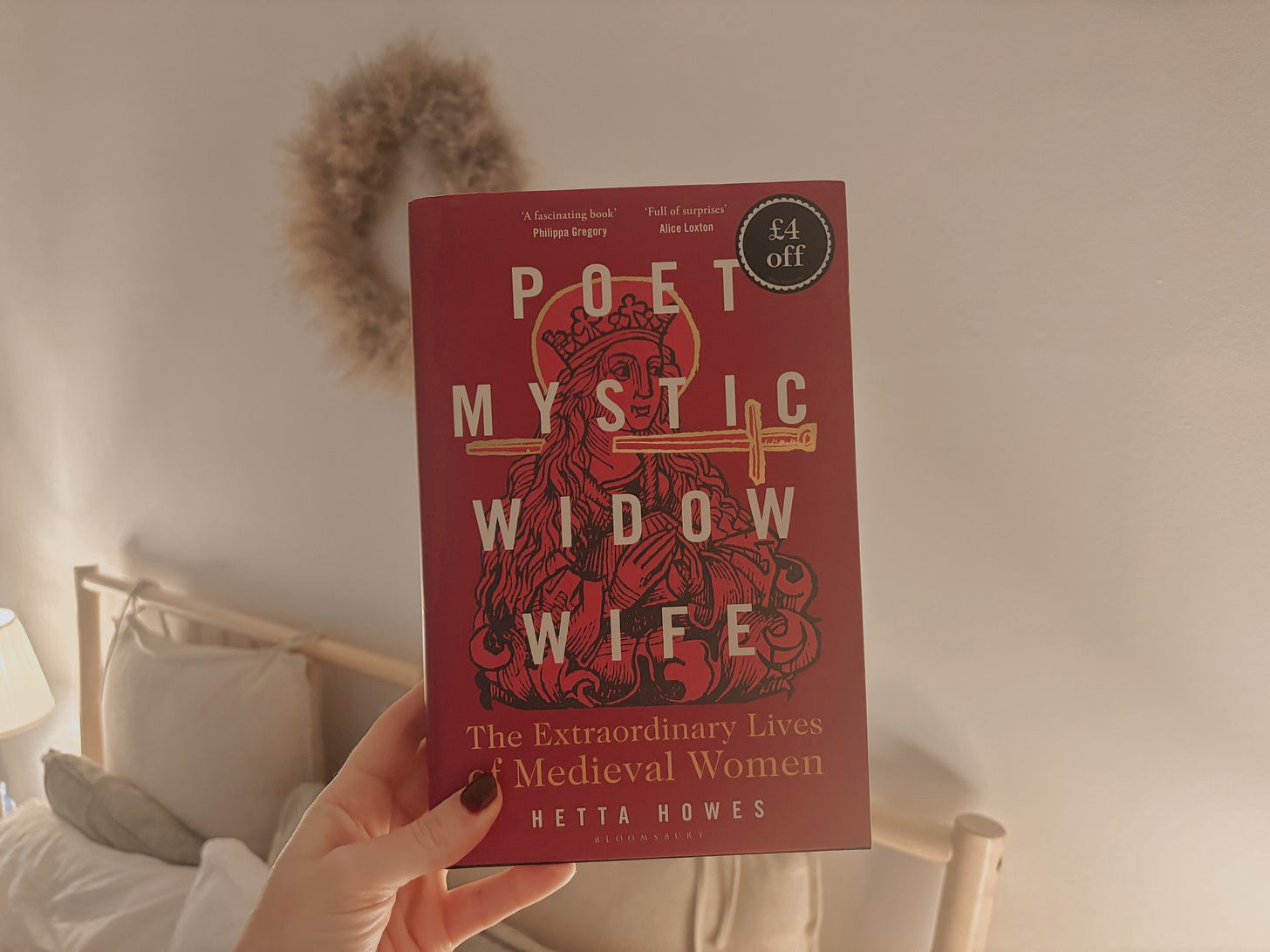
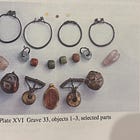


This was a wonderful review!! I definitely would’ve thought that it was a biography of the four women. I love that these women’s writing is actually the medium through which Howe attempts to recreate a picture of what “ordinary” women’s lives were like. Into my TBR pile this goes!
This book is in my TBR pile! I can't wait. Thanks for the review. Another great book I'd recommend is Sainted Women of the Dark Ages, edited by Jo Ann McNamara and E. Gordon Whatley. It is a compilation of translated vitae of 18 female saints from the 6th & 7th centuries.